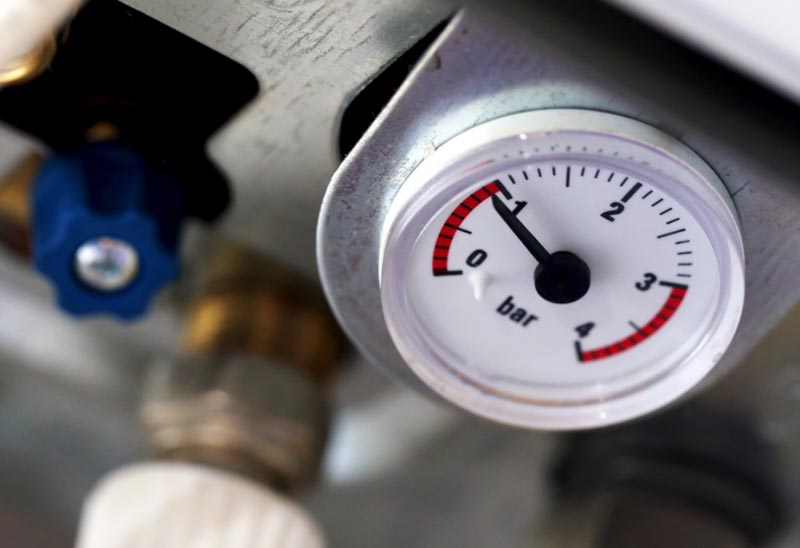There’s nothing worse than coming home to find your boiler has broken down. No heating, no hot water and depending on the level of damage, you may find yourself having to pay out for a new boiler entirely.
The sad truth is that boilers can and will eventually break down. However, you can dramatically increase the lifespan of your boiler by routinely getting it serviced by a qualified gas safe engineer. A boiler service will allow an engineer to thoroughly check your boiler to ensure everything is in working order, as well as highlight areas that may need a repair to reduce the risk of further damage down the line.
All in all, depending on the type of boiler you have, a boiler service should take no longer than half an hour. Your boiler engineer will give you a rundown of the service in the form of a boiler service report, which will cover the areas that have been assessed, and whether or not any boiler repairs are recommended.
When it comes to boiler service and repair though, you may be unsure as to just what is involved and what should be checked. Here’s a rundown of what is most commonly checked in a boiler service plan.
External Boiler Controls
The first thing a boiler engineer will check is the boiler controls you’ll likely be familiar with yourself, such as the thermostat. Not only will they check if it’s actually working, but it’s also important to check your boiler is putting out heat at the temperature you’ve set it to.
Depending on what type of boiler you have, an engineer will check on the external controls, such as the timer and programmer.
Boiler Pressure
Ensuring your boiler is operating at the right pressure level is important if you want to ensure the longevity of it. Regardless of whether your boiler has an analogue or digital pressure gauge, you’ll want the pressure to sit somewhere between 1 and 2 bars.
If the pressure level is below this, your boiler simply may not have the required pressure to heat your home and water efficiently. On the other hand, if the pressure is too high, you run the risk of damaging your boiler, which could cause it to break down over time.
Internal boiler components
A boiler service goes deeper than just what’s on the surface, which is why your boiler engineer will also assess all the internal boiler components.
There are many different components within your boiler but some of the most common parts that will be assessed are the burner and the combustion chamber.
The burner is what triggers the heat reaction to help power your boiler, while the combustion changer is where the fuel, most commonly LPG gas, is burnt. Naturally, both are vital in keeping your boiler in working order, so will be checked for any damages by your boiler engineer.
Boiler Flue
Have you ever noticed that pipe that travels from your boiler up and out of a wall in your house? That’s your boiler flue, a pipe designed to carry waste gases and condensation from your boiler and dispel it outside of your home.
A damaged boiler flue means these potentially harmful gases aren’t dispelled from your home. Not only can they leave a bad odour in your home but they can also leave you feeling rather unwell if exposed to them for an extended period of time.
Safety devices
Boilers have a number of devices in place to ensure their safety during operation. The most common that you may be familiar with is the safety valve. This helps relieve internal pressure, which is vital for when the pressure in your boiler is too high. Signs of corrosion and rust are key factors that may mean a new one is needed, but your boiler engineer will let you know if this is the case.
Other safety devices include the water level control, which ensures the water in your boiler never falls below a certain mark. Sludge buildup is the most common cause for a faulty water level control, so this will be checked and also cleaned should it be deemed necessary.
Boiler pipework
Your boiler’s pipes play an important role in transferring gas and water around your home. Fortunately, damage can be quite easy to spot; your boiler engineer will look for any leaks and cracks.
What can be slightly harder to diagnose is if there is a sludge buildup within the pipes. If this is the case though, your boiler engineer may recommend a power flush to help clear it out.
Seals
Finally, your boiler’s seals will be checked to ensure they are still working as intended, such as the rubber seal you’ll find on the burner.
Seals are important as they help prevent any gases leaking out of the boiler. Having a broken seal on your burner could cause some flue gases to escape, which is why checking them always forms part of a boiler service plan.
Boiler Service in Ashford and Kent
Is your boiler overdue a service? Our team of qualified gas safe registered engineers are on hand to help ensure your boiler keeps performing at its best. Give us a call today for a free boiler service quote.

